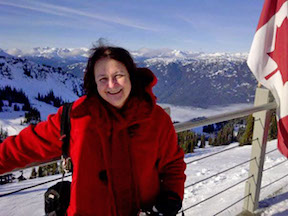What perspective is added by Annie Wakeman’s prologue? Is it needed?
Under what circumstances do we meet Elizabeth Dobbs? What are some characteristics of her speech?
What does she tell us in the Autobiography's prefatory remarks? What seem to be some characteristics of her temperament? (likes music, flowers, animals; industrious; seems fairly forgiving)
What does she list as her experiences during childhood? How may these have influenced her later life and character? (lack of stability, father's violence, mother's submission)
What attitudes does she express toward her parents? (able to pity and forgive her mother, doesn't complain much about her father) Her grandmother? (had been starved by her offspring, hastened to her death)
How may Dobbs' narrative be affected by the fact that it is oral? That it is told to her employer?
How intrusive is Annie Wakeman as a listener/transcriber? What are some ways in which she may have influenced Dobbs' narration of her story?
Are the breaks between sessions well-timed? Arranged for dramatic purposes?
What are Elizabeth's work experiences? Would these have been unusual for a young servant at the time? (paid slightly over 5 pounds a year plus board; harrassed by lodgers)
What had been her experiences in the country? How much education did she receive? How may lack of education have influenced her later life?
What role is ascribed to "Aunt Bayley"? (compares Dobbs' father to Bill Sykes in Oliver Twist)
What are some of the literary or theatrical references in the Autobiography? How does she respond to music? What abilities does she evince as a young woman? (singing skill, good at cooking and other practical tasks)
Under what circumstances does she claim to have been seduced? What do you make of her feelings of regret? (internalized sense of propriety)
What difficulties does she undergo as a pregnant unmarried woman? What forms of assistance does she receive?
What emotions does she express toward the father of her child? How do you account for her lack of blame?
What do we learn about the ministry of the Rev. Charles Gutch? What causes her to leave his employ?
What are Elizabeth's motivations for cohabiting with Jakes? What were his merits and demerits as a partner? Do you think her judgments are always just?
What emotions does Elizabeth express toward her children? Whom does she favor, and for what reason?
What events lead to Jakes' death? What does she claim are his last remarks?
Under what circumstances does her daughter Winnie die? How does she respond to the requirement of an inquest? (offended at imputation of negligence) Does she believe she had been responsible?
What does she tell her inquisitors?
What do you make of her concern about legal marriage? About the fact that despite this she had not married?
In what occupations does she engage? Are these successful?
What seem to be her views on alcohol?
In what contexts is food described or mentioned? Why do you think it is so important to her?
What motivates her marriage to Richard Goffin? What qualities does she seem to admire in men? Does this indicate a limitation in judgment?
What are Elizabeth's views on gender roles? On the respective duties of wives and husbands?
What are the qualities of her children? Which does she prefer, and what seems to be his character? What is her relationship with her second son John Henry?
What forms of abuse does she suffer from Goffin, and how does she respond to mistreatment? Why does she not leave him?
What effect does his behavior have on her elder children?
What are the fortunes of her younger children, and how may these have been affected by the circumstances of their birth and rearing? (violence during pregnancy may have caused younger daughter's birth defects)
What seem to be her qualities as a mother? As an employee?
What are her views on religion? On the consumption of alcohol?
What do she and Annie Wakeman have in common? What qualities in her do you think evoke Wakeman's interest and sympathy?
Since this is an oral narrative prepared in the days before recording equipment, how accurate do you think Wakeman's rendition would have been? What may be ways in which this narrative may have been shaped or edited?
What circumstances surrounding Richard Dobbs' desertion bring special pain to Elizabeth?
What events in later life bring gratification and happiness to Dobbs? (glad that John Henry is successful; gratified at marriages of her sons; daughter-in-law Florrie is helpful)
Is there a pattern to the events and scenes which Elizabeth remembers most vividly? (likes festive events with ample food)
Under what circumstances does she die? What reflections are ascribed to her on her deathbed?
What personal merits does Annie Wakeman ascribe to her?
How are humor and irony used throughout the narrative? (Dobbs's bluntness, evasion, use of unlikely metaphors)
What are some contemporary social issues or changes alluded to in the narrative? (vivisection, 7; punishment for violence to spouse--her father fined; establishment of urban missions and settlement houses; inquest into child death)
